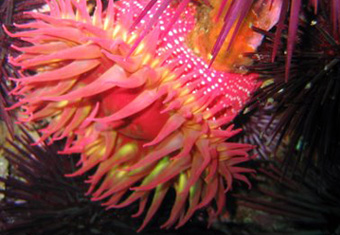

Abstract
Mounting evidence suggests that overfishing can trigger a cascade of indirect effects throughout marine food webs thereby modifying marine ecosystems and the economic and social systems that rely on them. Fortunately, ecosystem-based management tools such as marine reserves are increasingly being implemented with the goal of restoring marine ecosystem function. Concurrently, managers are increasingly being asked to assess reserve performance at achieving this goal. However, the effects of marine reserves on ecosystem processes are rarely measured despite that the restoration of ecosystem function is their paramount goal. I propose to fill this gap by investigating the extent to which marine reserves alter key ecosystem processes such as predation, herbivory, productivity and carbon flow, all of which are known to drive ecosystem function. I then propose to use this empirically derived data to develop a predictive model which managers can use to determine where, when and under what conditions are the cascading effects of fishing likely to ensue. By revealing the ecological mechanisms that drive biological patterns of concern to conservation practitioners and managers, this innovative and mechanistic approach will improve our predictive ability to forecast the ecosystem-level effects of marine reserves across a range of oceanographic conditions. In collaboration with the Marine Science Institute at the University of California Santa Barbara and the Channel Islands National Marine Sanctuary, I have designed this research to explicitly inform ecosystem-based management, one of the foremost challenges facing conservation and management practitioners today.
